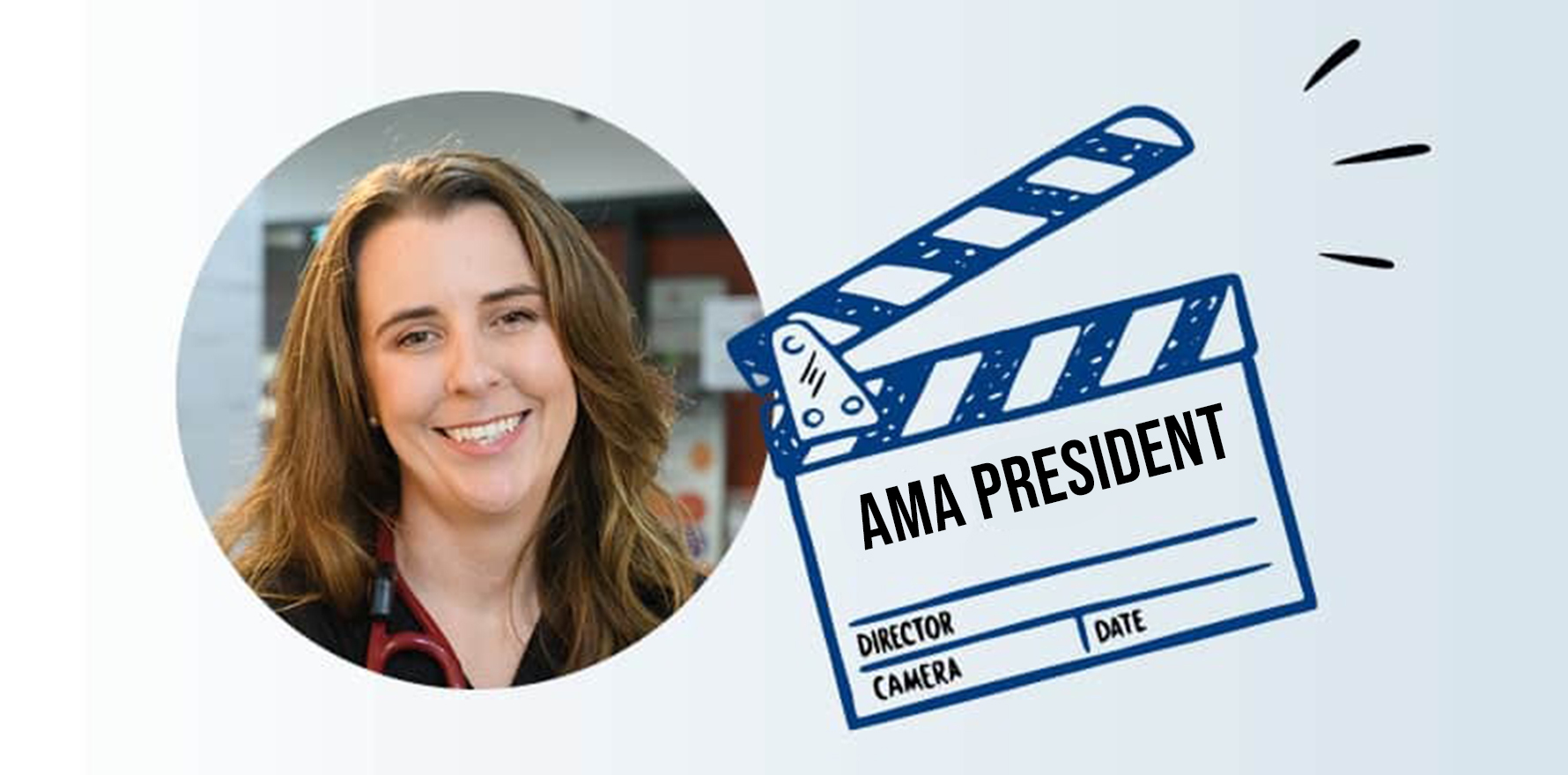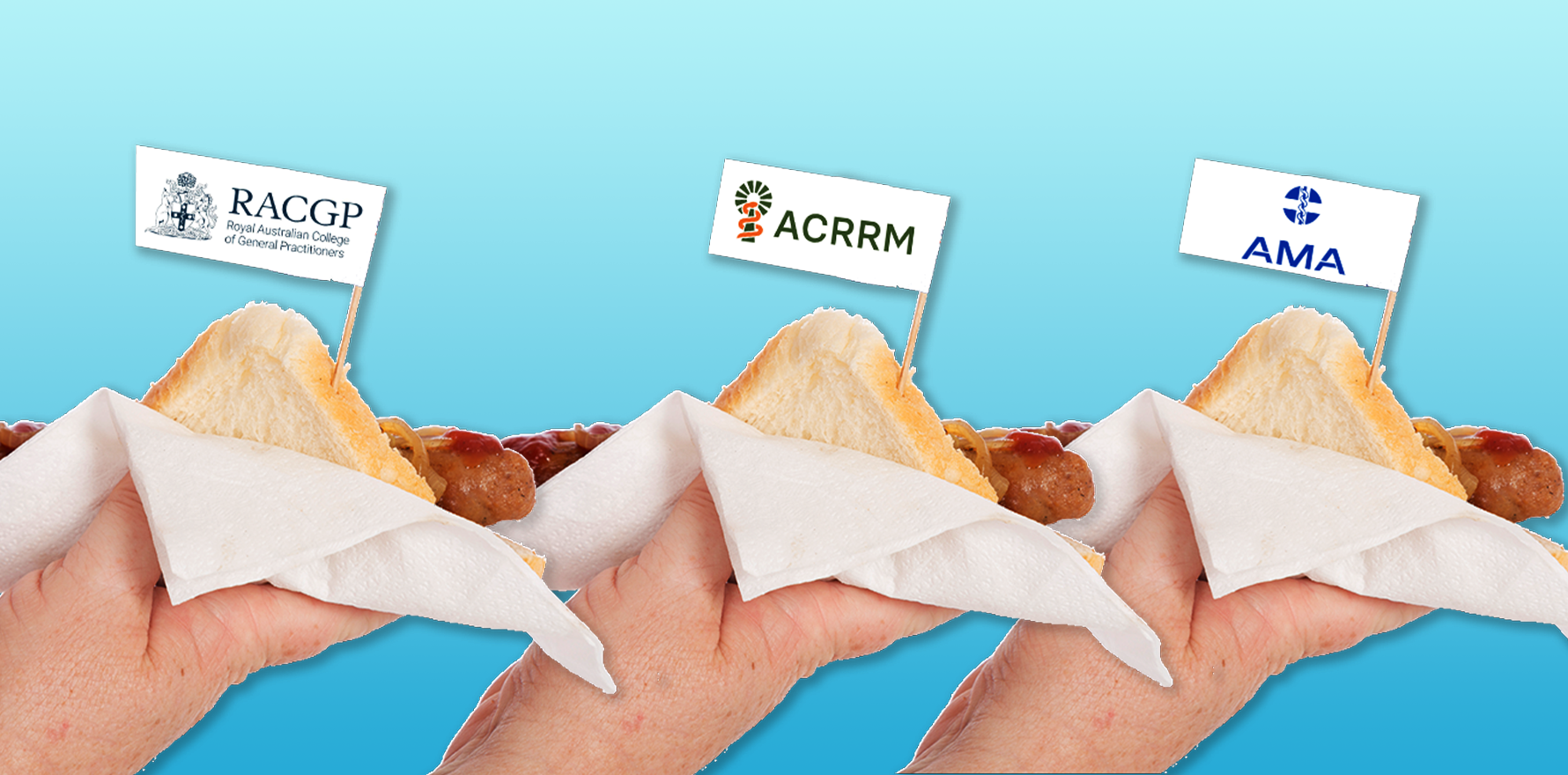Meet the doctors vying for the RACGP presidency in this year’s election.
Five GPs have thrown their hats into the ring to become the next RACGP president, with elections looming in less than one month.
Announced by the college today, the candidates are Dr Palmyra De Banks, Dr Monirul Haque, Dr Alan Bradley, Associate Professor Michael Clements and Dr Michael Wright.
Voting will kick off on Monday 12 August and stay open through the following Thursday, with a winner announced on Friday 23 August.
The Medical Republic will be running interviews with each of the doctors over the coming weeks, but here’s a taster of what each candidate has to offer (alphabetically by surname).
Dr Alan Bradley
Dr Bradley may be the youngest candidate in the race – he fellowed in 2020 – but with at least 30 years of working life ahead of him, he’s also arguably got the biggest incentive to fix general practice.
Currently based in Melbourne’s outer suburbs, Dr Bradley is involved with medical education at various different levels, from tutoring first-year medical students to supervising GP registrars.
In his view, general practice has already begun a “death spiral” that will lead to prescribing rights for pharmacists, independently operating nurse practitioners and an influx of under-qualified health workers.
“GPs will be left to pick up the pieces in this fragmented system: a future as a risk sponge for other professions,” Dr Bradley’s candidate statement said.
“MyMedicare registration is the thin end of the wedge for this, and our college has been sleepwalking into this disaster – too busy pushing the government’s agenda on 60-day dispensing when they should have been protecting our profession.”
Dr Bradley pledged to “take the fight to the government” to protect general practice, and urged his colleagues to “send a message to the college” by voting for him.
A/Prof Michael Clements
In terms of experience, Townsville-based Professor Clements has the edge over the other four doctors as the current RACGP vice president and chair of the rural faculty.
He’s been on the college board as rural chair since mid-2020 and picked up the vice president position when Dr Bruce Willett wrapped up in December last year.
By his own telling, Professor Clements’ advocacy style would be less about going into Canberra all guns blazing and more about working to build up solid relationships with government.
“There is no magic threat or media campaign that the college can initiate that will turn the current government around to give us everything we demand,” his candidate statement reads.
“Primary care is under threat across most developed nations, financial lobbying interests are pervasive and governments are looking for cheap solutions.
“If there was a key piece of data or action that would reverse the decline in investment in general practice we would have used it already or seen it play out in the UK, Canada and elsewhere.”
He identified the three most pressing priority areas for general practice as: poor working conditions for overseas-trained doctors, inconsistent standards across training practices and the existential threat posed by allied health scope creep.
Professor Clements, who has a background in the Royal Australian Air Force, is also an experienced pilot and flies to outreach clinics in remote communities.
Dr Palmyra De BANKS
Sole female candidate Dr De Banks is already an involved member of the medical community – she’s on the RACGP Victoria Council and IMG committee, is involved with the AMA at a local level and sits on the MIGA medical advisory panel.
Her main concerns are the lack of junior doctors coming into general practice, rising out-of-pocket costs and the increasing administrative burden falling on GPs.
Under her leadership, Dr De Banks wrote in her candidate statement, the college would pursue a five-point plan to restore general practice to its former glory.
The first pillar of her plan is to shore up recruitment, followed by simplifying the day-to-day tasks of GPs.
Pillars three through five are pushing for Medicare reforms like expanding the bulk-billing incentive, developing effective solutions to the rural workforce crisis and enhancing mental health support for GPs.
“Time and time again, we see other groups such as pharmacists and nurses prepared to push a tough agenda on behalf of their profession, and I want RACGP to be pushing harder,” Dr De Banks said.
“As you all know, you can’t fix Australia’s health system without general practitioners at the heart.”
Related
Dr Monirul Haque
Dr Haque is currently based in Victoria, but his general practice career has taken him to all corners of the country, from Mt Isa to the Sunshine Coast to Katherine and to the Macedon Ranges.
Before moving to Australia 20 years ago, Dr Haque also practised across Asia, Europe and Africa.
He described himself as a “motivator” and innovative person, and pledged to tackle the mandatory reporting laws that make many health professionals wary of seeking professional help for mental illness.
The Victorian-based GP also said he would consider changing the name of the RACGP to the Royal Australian College of General Practice and Family Medicine and allowing practice managers to join the college as associate members.
“I will address and overcome barriers to ensure RACGP effectively represents GPs’ voices,” his statement reads.
“Constitutional barriers hinder GPs from advocating on critical work and training issues; these must adapt to meet GP needs.”
Dr Haque is also passionate about international medical graduate system reform.
Dr Michael Wright
Rounding out the candidate pool is Sydney-based multi-hyphenate GP Dr Wright.
He not only has a PhD in health economics and chairs the college’s funding and health system reform committee but is also the chief medical officer at medical indemnity firm Avant Mutual.
“We need a president who understands clinical practice, who has expertise in the economics of the health system, and who can effectively communicate with funders and policymakers in terms that they understand,” Dr Wright’s personal statement read.
“My experience as a clinician, health economist and advocate will be fundamental to successfully achieving the outcomes we need, raising understanding of the critical role of general practice and ensuring a well-funded, strong general practice now and into the future.”
In his first 100 days as president, Dr Wright said he would endeavour to develop a costed proposal to increase MBS funding targeting vulnerable patients, get RACGP representation on MBS incentives reviews and arrange for every politician in the country to meet with a local GP.
Like Dr De Banks, he also has a five-pronged plan to get general practice “back to the heart of the health system”.
Some of the granular goals of this plan include setting benchmarks for high-quality primary care spending with a target of 10% of the health budget, supporting the internationally trained doctor network and creating a member portal to share good and bad system experiences to help inform advocacy.
“I encourage all members to vote in this election, as a strong turnout demonstrates our commitment to our health system and the changes we need to make to provide quality care for all Australians,” Dr Wright said.
“I hope you will consider voting for me.”





